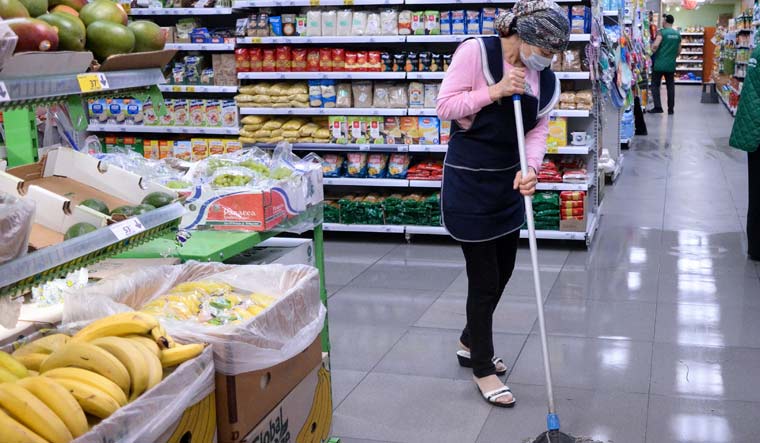Retailers across the country are gearing up to grab the post lockdown opportunity when the market opens up to a new normal. As the lockdown restrictions ease and phased open of retail outlets start, retailers are getting ready to grab the opportunity with new strategies and change in approach towards their customers. Some retailers are positive and are looking at it as a new opportunity irrespective of their scale or category.
Retailers are leaving no stone unturned--line extensions, trying out a different line of business, a different way of working or even new collaborations and partnerships.
During a recent webinar conducted by the Retailers Association of India (RAI), Sandeep Kataria the managing director of Bata India pointed out that retailers will have to be extremely alert to the situation while being sensitive towards their consumers. “Relationships are going to be key to the survival of all businesses. Everyone in the ecosystem must cooperate. For instance, we are now exploring home delivery of footwear though we have not done it before and are trying to develop our online capabilities,” remarked Kataria.
Many retailers are also realising that during the post lockdown period, many consumers will still be hesitant to go out in crowded places to shop. They, in turn, can use this time to develop omni-channel capabilities. “Retailers should make use of the omnichannel format to boost their business as that is going to be the new normal. Customers would expect better service, quick home delivery and sensitivity towards their choices and tastes. On the other hand, retailers will have to be innovative and open-minded going forward,” observed Ravinder Gupta, CEO, Chhappan Bhog.
It is very clear that the Covid-19 pandemic has changed consumer behaviour and expectations in several ways due to lockdown guidelines and also due to hygiene concerns. Many customers would like to get items delivered to their houses rather than go to the store. Customers who would like to go to the store, want to feel safe. Their thought process about touch and feel and checking out various items has changed.
Also, the definition of what is essential is getting dramatically redefined. As the lockdown eases customers have now realised that in addition to food, they also need other items like kitchen equipment, cleaning supplies, items like air conditioners, refrigerators, washing machines, dishwashers, etc. At the same time, customers are also looking for items like grooming products, earlier not considered necessary. Therefore, the list of ‘essentials’ for consumers is changing every day and this is going to create demand for new products in the marketplace.
Another important trend that retailers are observing is the demand for many products is going to reduce due to the lack of money in the hands of consumers. Consumers would look at items they need rather than items considered an indulgence. Hence, retailers are also trying to relook at their product mix and the way in which they will need to do their businesses.
RAI believes that ‘phygital’ retail is going to become the new truth because customers would like to go to stores for some items and order others from home or they would also like to browse at home before stepping out to buy. The entire customer discovery process will predominantly become digital. Offline to online and online to offline buying is going to be the way of life and most retailers are getting prepared for this.
Bhagirath Jalan, MD of Jalan’s Retail, feels that retailers should free themselves from the restrictions of categories and be flexible. He feels that this may be a good time for small retailers. “The Covid-19 crisis is good for the 500 square feet essential goods retailer. More consumers are frequenting these stores because of trust. In future, more retailers should focus on building capabilities that inspire trust,” said Jalan.
Experts say that key pieces around the retail business right now are--stock availability, access and consumer demand. There is recovery from the manufacturer front in terms of making stocks available and accessible to the retail trade right now. Likewise, large retailers have beefed up their online infrastructure and presence in order to serve their customers. Standalone stores are also taking up telephonic orders and delivering goods directly to home.
“Some of the ways by which retail could seek to grab business could be through digital wallets, credit card acceptance, free home delivery, tie up with delivery partners, offer instant delivery, redo store layouts for easy walk throughs, build a hygienic and well sanitized store environment, tele call existing customers for orders, offer better pricing, build loyalty programmes to retain customers. Besides these, social media advertising, WhatsApp and SMS messaging will be some of the tools the retail trade will spend on for customer acquisition. Retailers who learn from their customer data early and apply the learnings in their business will gain at the expense of those who don’t. After all, it’s the early bird that catches the worm,” Venkatesh Parthasarathy, Vice President Marketing, Lotte India told THE WEEK.



